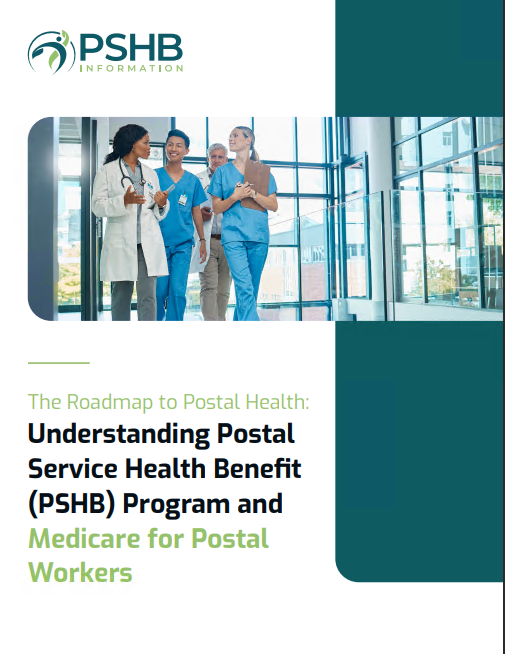Key Takeaways:
- Postal Health Service benefits offer a variety of medical financial assistance programs to help cover various healthcare expenses.
- Understanding the eligibility criteria and application process is essential to accessing these benefits.
Learn About Types of Medical Financial Assistance Offered by Postal Health Service Benefits
Medical expenses can quickly become overwhelming, especially when unexpected health issues arise. For postal employees, the Postal Health Service offers a range of financial assistance programs designed to alleviate the financial burden of healthcare costs. This guide explores the different types of medical financial assistance available, eligibility criteria, application processes, and more.
Overview of Medical Financial Assistance Programs
The Postal Health Service provides several financial assistance programs to help employees and their families manage healthcare costs. These programs are designed to cover a wide range of medical expenses, ensuring that beneficiaries can access necessary care without incurring significant financial hardship.
Types of Financial Assistance
- Medical Expense Assistance: Helps cover costs such as doctor visits, hospital stays, surgeries, and outpatient procedures.
- Prescription Assistance: Provides support for prescription medications that are not fully covered by your health plan.
- Preventive Care Assistance: Covers costs associated with preventive services like vaccinations, screenings, and routine check-ups.
- Specialized Treatment Assistance: Offers financial support for specialized medical treatments, such as physical therapy or mental health services.
- Emergency Medical Assistance: Assists with urgent and emergency medical expenses.
Importance of Financial Assistance Programs
These programs are crucial for mitigating the financial impact of healthcare costs. By providing support for a variety of medical expenses, they ensure that financial barriers do not prevent access to necessary medical care, thus promoting better health outcomes.
Eligibility Criteria for Medical Financial Assistance
Understanding the eligibility criteria for medical financial assistance programs is essential to determine if you qualify for the benefits offered by the Postal Health Service.
General Eligibility Requirements
- Employment Status: You must be a current postal employee or a retiree eligible for Postal Health Service benefits.
- Dependent Status: Eligible dependents typically include spouses and children under the age of 26.
- Financial Need: Demonstrating financial need is a key criterion, usually involving the provision of income, expenses, and financial obligations information.
Specific Eligibility Criteria
Each financial assistance program may have additional specific requirements. For example:
- Medical Expense Assistance: Requires detailed medical bills and proof of treatment.
- Prescription Assistance: Needs proof of prescription costs and pharmacy receipts.
- Preventive Care Assistance: May have age-specific criteria, such as vaccinations for children.
- Specialized Treatment Assistance: Often requires a letter from a healthcare provider stating the medical necessity of the treatment.
Documentation Required
- Income Verification: Recent pay stubs, tax returns, and other income sources.
- Medical Bills: Detailed invoices and statements from healthcare providers.
- Insurance Information: Details about your current health insurance plan and coverage.
- Personal Identification: Valid ID, Social Security number, and dependent verification (e.g., birth certificates for children).
- Expense Records: Documentation of other household expenses, such as rent/mortgage, utilities, and educational costs.
How to Apply for Financial Assistance
Applying for financial assistance through Postal Health Service benefits involves several steps. Following these steps carefully can increase your chances of securing the needed assistance.
Step-by-Step Application Process
- Review Program Details: Before starting your application, review the details of the financial assistance programs available. Understand the types of expenses covered, the eligibility requirements, and the application deadlines.
- Gather Documentation: Collect and organize all necessary documents. Use a checklist to ensure you have everything required to support your application.
- Complete the Application Form: Fill out the application form thoroughly and accurately. Provide detailed information about your financial situation, including income, expenses, and the specific medical costs for which you need assistance.
- Submit the Application: Submit your completed application along with all required documentation. Ensure that you meet any submission deadlines and follow the specified submission process, whether it’s online, by mail, or in person.
- Follow Up: After submitting your application, follow up with the Postal Health Service benefits office to confirm receipt and check the status of your application. Keep a record of any correspondence or confirmation numbers.
Tips for a Successful Application
- Be Thorough and Accurate: Ensure that your application is complete and accurate. Double-check all information and documentation before submission.
- Provide Clear Justification: Clearly explain your financial need and how the assistance will help you manage medical expenses.
- Meet All Deadlines: Submit your application and any required follow-up information by the specified deadlines.
- Stay Organized: Keep copies of all submitted documents and correspondence. This helps you track your application and provides a reference if any issues arise.
- Seek Help if Needed: If you have questions or need assistance with your application, contact the Postal Health Service benefits office or a financial advisor.
Types of Medical Expenses Covered
The Postal Health Service financial assistance programs cover a variety of medical expenses to ensure comprehensive support for beneficiaries.
Doctor Visits and Hospital Stays
- Routine Check-Ups: Regular visits to your primary care physician for preventive care and monitoring chronic conditions.
- Specialist Consultations: Visits to specialists for specific health issues, such as cardiologists, neurologists, or oncologists.
- Hospital Admissions: Costs associated with hospital stays, including room charges, nursing care, and surgical procedures.
Prescription Medications
- Coverage for Essential Medications: Financial assistance for prescription drugs necessary for treating various health conditions.
- Pharmacy Costs: Assistance with the costs of filling prescriptions at participating pharmacies.
Preventive Services
- Vaccinations: Coverage for routine immunizations to prevent common infectious diseases.
- Screenings: Financial support for health screenings, such as mammograms, colonoscopies, and blood tests.
- Health Check-Ups: Regular health check-ups to monitor and maintain overall health.
Specialized Treatments
- Physical Therapy: Financial support for physical therapy sessions required for recovery from injuries or surgeries.
- Mental Health Services: Assistance with the costs of counseling and therapy for mental health conditions.
- Chronic Disease Management: Coverage for specialized treatments and ongoing care for chronic diseases like diabetes, asthma, and heart disease.
Emergency Medical Assistance
- Urgent Care Visits: Financial support for urgent care visits when immediate medical attention is needed.
- Emergency Room Visits: Coverage for emergency room services in case of serious or life-threatening conditions.
- Ambulance Services: Assistance with the costs of emergency transportation by ambulance.
Special Programs for Chronic Conditions
For beneficiaries with chronic conditions, the Postal Health Service offers specialized programs designed to provide ongoing financial support and comprehensive care.
Chronic Disease Management Programs
- Diabetes Management: Financial assistance for medications, supplies (like glucose meters and test strips), and regular consultations with endocrinologists.
- Asthma Care: Support for medications, inhalers, and periodic evaluations by respiratory specialists.
- Heart Disease: Assistance with medications, cardiac rehabilitation programs, and regular monitoring by cardiologists.
Support Services
- Educational Programs: Access to educational resources and support groups to help manage chronic conditions effectively.
- Care Coordination: Services that help coordinate care among different healthcare providers to ensure comprehensive management of the condition.
Prescription Medication Assistance
Prescription medication costs can add up quickly, making prescription assistance programs vital for many families.
Types of Medications Covered
- Essential Medications: Drugs required for the treatment of acute and chronic conditions.
- Specialty Medications: High-cost drugs used for complex conditions like cancer, rheumatoid arthritis, and multiple sclerosis.
- Generic Medications: Lower-cost alternatives to brand-name drugs that provide the same therapeutic benefits.
How to Access Prescription Assistance
- Pharmacy Networks: Utilize participating pharmacies within the Postal Health Service network to benefit from reduced costs.
- Mail-Order Options: Some plans offer mail-order pharmacy services for convenient delivery of long-term medications.
Documentation Needed
- Prescription Records: Pharmacy receipts and a letter from your healthcare provider detailing the necessity of the medications.
- Financial Information: Proof of income and out-of-pocket prescription costs.
Navigating Emergency Medical Financial Assistance
Emergencies are unpredictable and often come with high costs. The Postal Health Service provides financial assistance to help manage these unexpected expenses.
Types of Emergency Services Covered
- Urgent Care: Visits to urgent care centers for non-life-threatening emergencies.
- Emergency Room Services: Comprehensive coverage for emergency room visits in case of severe or life-threatening conditions.
- Ambulance Services: Financial support for emergency transportation by ambulance.
How to Apply for Emergency Assistance
- Immediate Application: In the event of an emergency, promptly apply for financial assistance by providing necessary documentation and explaining the nature of the emergency.
- Follow-Up: After the initial application, follow up with the benefits office to ensure all required information has been received and processed.
Important Considerations
- Documentation: Keep detailed records of all emergency services received and associated costs.
- Timeliness: Submit applications and required documentation as soon as possible to expedite the assistance process.
Conclusion
Understanding the types of medical financial assistance offered by Postal Health Service benefits is crucial for effectively managing healthcare costs. By knowing the eligibility criteria, how to apply, and the types of expenses covered, you can ensure that you and your family receive the support needed to maintain good health without financial strain. Stay informed about the various programs available and take advantage of the resources provided to secure the best possible care.
Contact Information:
Email: [email protected]
Phone: 5125552345





